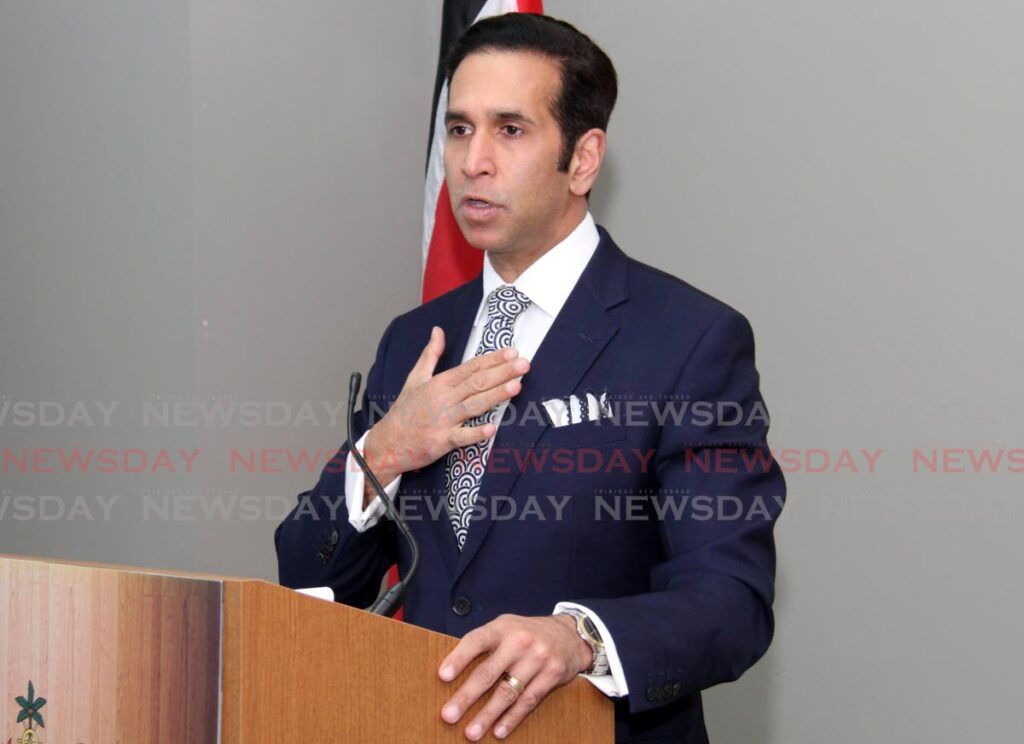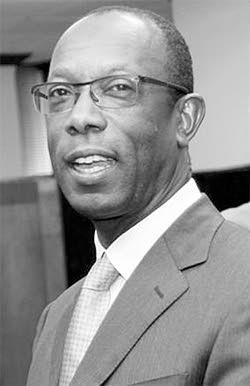Al-Rawi: I had no control over ACIB charging Nelson

FORMER attorney general Faris Al-Rawi could not influence the investigations of the Anti-Corruption Investigation Bureau (ACIB) of the police service.
This was the response to a claim by convicted King’s Counsel Vincent Nelson, who alleged Al-Rawi had control of the ACIB, and any representation he made that Nelson should not be prosecuted was “binding on the Government.”
Nelson is now suing the State for over $100 million for a breach of an indemnity agreement which he said should have protected him from criminal prosecution and other sanctions if he gave evidence of a conspiracy involving former AG Anand Ramlogan, SC, and attorneys hired by the People’s Partnership regime.
Nelson claims Al-Rawi represented he had the power and authority to enter into the indemnity agreement on behalf of the Government.
It was Nelson’s statement, dated October 26 2017, that led to corruption charges against Ramlogan and ex-UNC senator Gerald Ramdeen. The charges were discontinued on October 10 because Nelson said he was not willing to give evidence in that matter until his civil claim came to an end.
Nelson says before October 2017, neither the police nor Al-Rawi had credible evidence of alleged wrongdoing.
He says Al-Rawi assured him in November 2018 he would not be prosecuted.

The former AG, who was questioned by the ACIB in July, on Government’s agreement with Nelson, told police the indemnity agreement was not given to them or the Director of Public Prosecutions when he got it because the matter was assigned to the minister in the Ministry of the AG, Stuart Young.
Al-Rawi told police it was Young who gave Nelson’s statement about the alleged legal fees kickback conspiracy to investigative authorities in the UK, but he did draw to the DPP’s attention the clause in the indemnity agreement that spoke of a recommendation that Nelson should not face criminal charges.
Al-Rawi reportedly repeated the recommendation, going so far as to suggest that Nelson – after he pleaded guilty to conspiracy offences – should receive a conditional pardon.
The former AG contends other than recommending that Nelson should not be prosecuted, he had no role to play in the decisions either the DPP or the police took on the laying of criminal charges against Nelson.
He maintains the DPP and police carried out their functions without his interference.
He also told the police he could not say whether Nelson knew that he could be charged if his statement was dislcosed to the DPP and ACIB, but reminded that the former was a senior attorney, with his own independent legal counsel.
Al–Rawi also maintained he had nothing to tell Nelson about the DPP's accepting his recommendation.
Al-Rawi’s defence is that while the ACIB was under the Office of the AG, the relationship between the ministry and the policing unit was administrative in nature only. The ACIB, he insisted, remained a unit of the police service.
The ACIB was established by Cabinet Minute No 20 of 2002 as a unit in the Office of the AG. Al-Rawi says the AG did not have direct control of the ACIB and could not influence its operations or investigations. Nor could he influence the DPP.
He said the ACIB’s only contact with the AG was to keep him informed of the findings of its investigations.
In 2019, the ACIB was put under the exclusive authority of the Commissioner of Police.
Al-Rawi also maintained that the agreement with Nelson expressly provided for disclosure of his statement to the ACIB and DPP. However, it also purportedly assured there would be no disclosure to any criminal investigating, prosecuting, tax enforcement or disciplinary authority outside TT.
He also pointed out that the prosecution of corruption offences can only be started by or with the consent of the DPP.
Young has since defended his decision to hand over Nelson’s statement to the UK’s National Crime Agency.
“It can never be a breach of any proper legal agreement, or law, to provide evidence to a legitimate law enforcement agency,” he said on Sunday in a Facebook post.
Al-Rawi admitted Nelson was a whistleblower and co-conspirator who had expressed his willingness to give evidence.
In announcing the decision to discontinue the case against Ramlogan and Ramdeen, DPP Roger Gaspard, SC, distanced his office and the police from the affair. He said the police did all they could to secure a different outcome, but this was coloured by factors outside their confines.


Comments
"Al-Rawi: I had no control over ACIB charging Nelson"